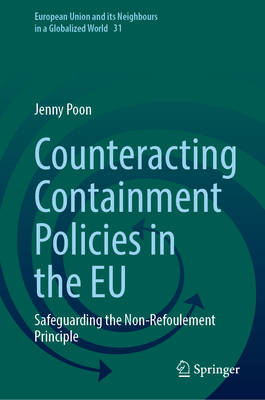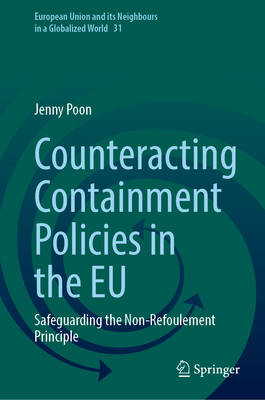
Bedankt voor het vertrouwen het afgelopen jaar! Om jou te bedanken bieden we GRATIS verzending (in België) aan op alles gedurende de hele maand januari.
- Afhalen na 1 uur in een winkel met voorraad
- In januari gratis thuislevering in België
- Ruim aanbod met 7 miljoen producten
Bedankt voor het vertrouwen het afgelopen jaar! Om jou te bedanken bieden we GRATIS verzending (in België) aan op alles gedurende de hele maand januari.
- Afhalen na 1 uur in een winkel met voorraad
- In januari gratis thuislevering in België
- Ruim aanbod met 7 miljoen producten
Zoeken
€ 171,45
+ 342 punten
Omschrijving
This monograph examines an individual's right not to be returned to places where they may be in danger of serious human rights violations (termed "non-refoulement"). It argues that EU asylum practices can lead to a failure to observe this important right. As dire consequences can result if individuals are returned to places where they may face death, torture, or other cruel treatment, the European asylum system must comply with non-refoulement. However, EU countries use various tactics, including legal measures, to "contain" asylum claimants and refugees to other countries and to evade their responsibilities to observe non-refoulement under international and European law. These 'containment' strategies are demonstrated in two case study examples: the United Kingdom and Germany. In the first example, the United Kingdom returns asylum claimants and refugees back to transit countries where they did not claim asylum. This method of 'containing' asylum claimants and refugees effectively increases the chances of them being indirectly returned to face violations of human rights. In the second example, Germany returns these claimants and refugees through transfer processes back to another EU country by relying solely on guarantees from national governments. This effectively "contains" the claimants and refugees outside of Germany, again increasing the risks of human rights violations. As violence and conflicts persist, this book contributes to existing literature by providing human rights law analysis with a unique lens of 'containment'.
Specificaties
Betrokkenen
- Auteur(s):
- Uitgeverij:
Inhoud
- Aantal bladzijden:
- 280
- Taal:
- Engels
- Reeks:
- Reeksnummer:
- nr. 31
Eigenschappen
- Productcode (EAN):
- 9783032083500
- Verschijningsdatum:
- 23/10/2025
- Uitvoering:
- Hardcover
- Formaat:
- Genaaid
- Afmetingen:
- 156 mm x 234 mm
- Gewicht:
- 589 g

Alleen bij Standaard Boekhandel
+ 342 punten op je klantenkaart van Standaard Boekhandel
Beoordelingen
We publiceren alleen reviews die voldoen aan de voorwaarden voor reviews. Bekijk onze voorwaarden voor reviews.









